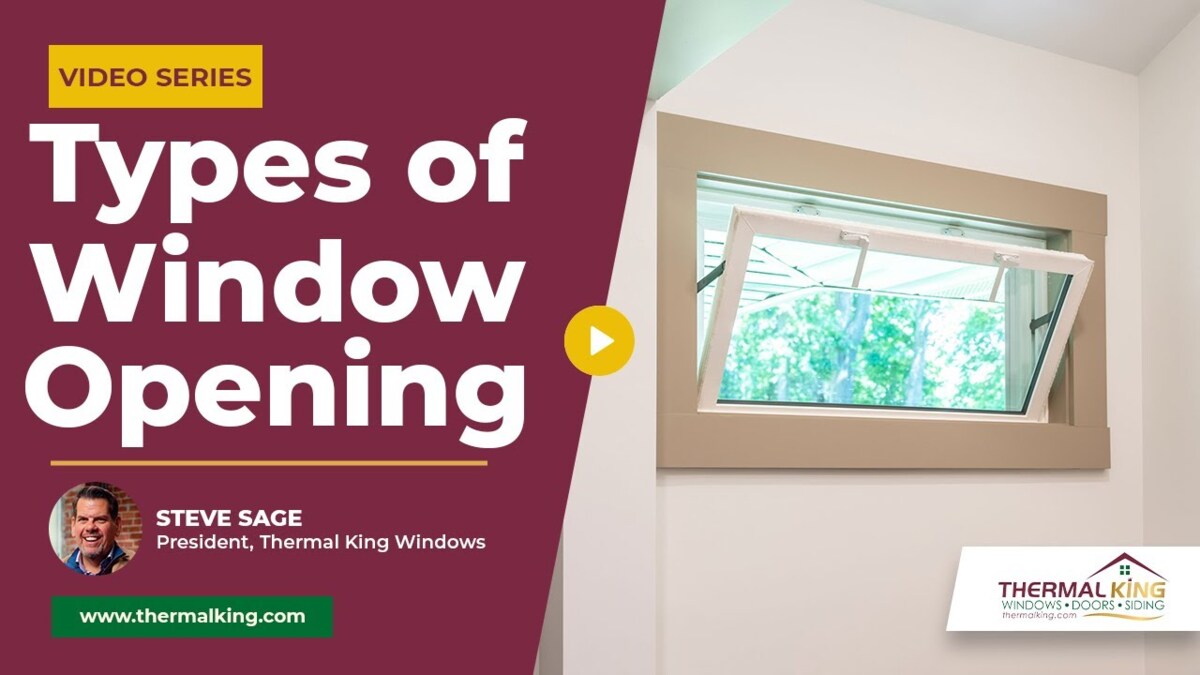Homeownership comes with a myriad of responsibilities, one of which is maintaining the integrity of the home. However, circumstances may arise that necessitate window replacement, leading many homeowners to wonder whether their homeowners insurance will cover these costs. You may wonder, are window replacements cover by home insurance? The simple answer is yes – but it depends on the scenario. This article explains the nuances of homeowners insurance and window replacements, providing clarity on what is typically covered and what is not.
Understanding Homeowners Insurance
Homeowners insurance is designed to protect homeowners against various risks associated with property ownership. It typically covers damages to the home itself, personal belongings, and liability for accidents that occur on the property. However, the specifics can vary significantly based on the policy type and the insurance provider. Homeowners insurance not only provides peace of mind but also serves as a financial safety net, allowing homeowners to recover from unexpected events without facing overwhelming costs. Understanding the nuances of these policies can empower homeowners to make informed decisions about their coverage needs.
Types of Coverage
Homeowners insurance generally includes several types of coverage: dwelling coverage, personal property coverage, liability coverage, and additional living expenses. Dwelling coverage protects the structure of the home, while personal property coverage safeguards belongings inside. Liability coverage protects against legal claims, and additional living expenses cover costs incurred if the home becomes uninhabitable. Each of these coverage types plays a crucial role in ensuring that homeowners are adequately protected. For instance, dwelling coverage not only encompasses the physical structure but may also include attached structures like garages and decks, which can be significant in the event of a loss.
Understanding these coverage types is essential when assessing whether window replacements will be covered. Most often, it is the dwelling coverage that comes into play for structural repairs, including windows. Additionally, homeowners should consider how upgrades or renovations might affect their coverage. For example, if new energy-efficient windows are installed, it may be beneficial to inform the insurance provider, as this could potentially lower premiums or enhance the overall protection of the home.
Policy Exclusions
While homeowners insurance provides valuable protection, it is essential to recognize that not all damages are covered. Common exclusions include wear and tear, neglect, and damage caused by natural disasters unless specific riders are purchased. Homeowners should carefully read their policy documents to understand what is not covered, as this can significantly affect the outcome of a claim. For instance, flood damage is often excluded from standard policies, prompting many homeowners to seek additional flood insurance if they live in high-risk areas.
Moreover, understanding the implications of these exclusions can help homeowners take proactive measures to mitigate risks. Regular maintenance, such as cleaning gutters and inspecting roofs, can prevent issues that might otherwise be classified as neglect. Additionally, some insurers offer discounts for homes equipped with security systems or fire alarms, which can not only enhance safety but also provide financial benefits. By being proactive and informed, homeowners can better navigate the complexities of their insurance policies and ensure they have the coverage they need in times of crisis.
When Are Window Replacements Covered?
Window replacements may be covered under certain circumstances, particularly if the damage is sudden and accidental. For example, if a severe storm causes a tree branch to crash through a window, the resulting damage is likely to be covered by homeowners insurance. In such cases, the homeowner can file a claim to have the window replaced at the insurance company’s expense.
Natural Disasters
Natural disasters can lead to significant damage to a home, including its windows. Most homeowners insurance policies cover damages caused by events like hailstorms, tornadoes, and hurricanes. If windows are shattered or severely damaged due to these events, homeowners can typically file a claim for replacement.
However, it’s important to note that certain natural disasters may require additional coverage. For instance, flood damage is often not included in standard homeowners insurance policies, necessitating a separate flood insurance policy. Homeowners in flood-prone areas should consider this when evaluating their coverage. Additionally, some policies may have specific exclusions or limitations regarding the types of natural disasters covered, so understanding the fine print of your policy is crucial. For example, while wind damage might be covered, some insurers may impose a deductible that is higher for wind-related claims, which could impact the overall cost-effectiveness of filing a claim.
Accidental Damage
Accidental damage is another scenario where window replacements may be covered. If a window is broken due to an unforeseen accident, such as a ball thrown by a child or a mishap during home maintenance, homeowners may be able to file a claim. However, the specifics can vary based on the policy, so it’s advisable to consult with the insurance provider.
In addition to typical accidents, coverage for window replacements can also extend to incidents involving pets. For example, if a dog accidentally crashes through a window while chasing a squirrel, this may be classified as accidental damage under some policies. Homeowners should document the incident thoroughly, including photographs of the damage and any relevant witness statements, to support their claim. Furthermore, some insurance companies offer endorsements or riders that specifically cover pet-related incidents, which can provide additional peace of mind for pet owners. It’s always beneficial to review your policy details and discuss any unique situations with your insurance agent to ensure you have the appropriate coverage in place.
When Are Window Replacements Not Covered?
While there are scenarios where window replacements are covered, there are also instances where they are not. Understanding these exclusions is vital for homeowners to avoid unexpected expenses.
Wear and Tear
One of the most common reasons window replacements are not covered is due to wear and tear. Homeowners insurance is not designed to cover routine maintenance or the gradual deterioration of a home’s components. If windows are old and have become drafty or are leaking due to age, the cost of replacement will likely fall on the homeowner.
Negligence
Negligence can also void coverage for window replacement. If a homeowner fails to maintain their windows properly, leading to damage, the insurance company may deny a claim. For example, if a window frame rots due to a lack of maintenance, the resulting damage may not be covered.
Filing a Claim for Window Replacement
When a homeowner determines that their window damage is covered by insurance, the next step is filing a claim. This process can seem daunting, but understanding the steps involved can make it more manageable.
Documenting the Damage
Before filing a claim, it’s crucial to document the damage thoroughly. Homeowners should take clear photographs of the broken windows and any surrounding damage. This documentation will serve as evidence when submitting the claim and can help expedite the process.
Contacting the Insurance Provider
Once the damage is documented, the next step is to contact the insurance provider. Homeowners should report the incident as soon as possible, as many policies have time limits for filing claims. During this conversation, it’s essential to provide all relevant information, including the circumstances of the damage and the documentation gathered.
Factors Affecting Coverage
Several factors can influence whether window replacements are covered by homeowners insurance. Understanding these factors can help homeowners navigate their policies more effectively.
Policy Limits and Deductibles
Every homeowners insurance policy comes with limits and deductibles. The limit is the maximum amount the insurance company will pay for a covered loss, while the deductible is the amount the homeowner must pay out of pocket before the insurance kicks in. If the cost of window replacement is less than the deductible, the homeowner will be responsible for the entire expense.
Previous Claims
Homeowners should also be aware that filing multiple claims can affect their insurance premiums. Insurance companies may view frequent claims as a sign of higher risk, potentially leading to increased rates or difficulty obtaining coverage in the future. Therefore, it’s wise to consider the long-term implications of filing a claim for window replacement.
Preventive Measures to Protect Windows
While homeowners insurance can provide valuable coverage for window replacements, taking preventive measures can help minimize the risk of damage. Implementing strategies to protect windows not only enhances their longevity but can also save homeowners from the hassle of filing claims.
Regular Maintenance
Regular maintenance is key to ensuring windows remain in good condition. This includes cleaning the windows, checking for any signs of wear, and addressing issues promptly. Homeowners should inspect window frames for rot or damage and replace weather stripping as needed to prevent drafts and leaks.
Storm Protection
In areas prone to severe weather, investing in storm protection can be beneficial. Installing storm windows or using window film can help protect against high winds and flying debris. These preventive measures can significantly reduce the risk of damage during storms, potentially saving homeowners from costly repairs.
Conclusion
In summary, window replacements can be covered by homeowners insurance under certain circumstances, such as accidental damage or natural disasters. However, wear and tear or negligence may lead to claims being denied. Homeowners should familiarize themselves with their policy details, including coverage limits and deductibles, to understand their financial responsibilities.
Taking preventive measures, such as regular maintenance and storm protection, can further safeguard windows and reduce the likelihood of needing replacements.
If your windows need replaced, contact the experts at Thermal King today!




